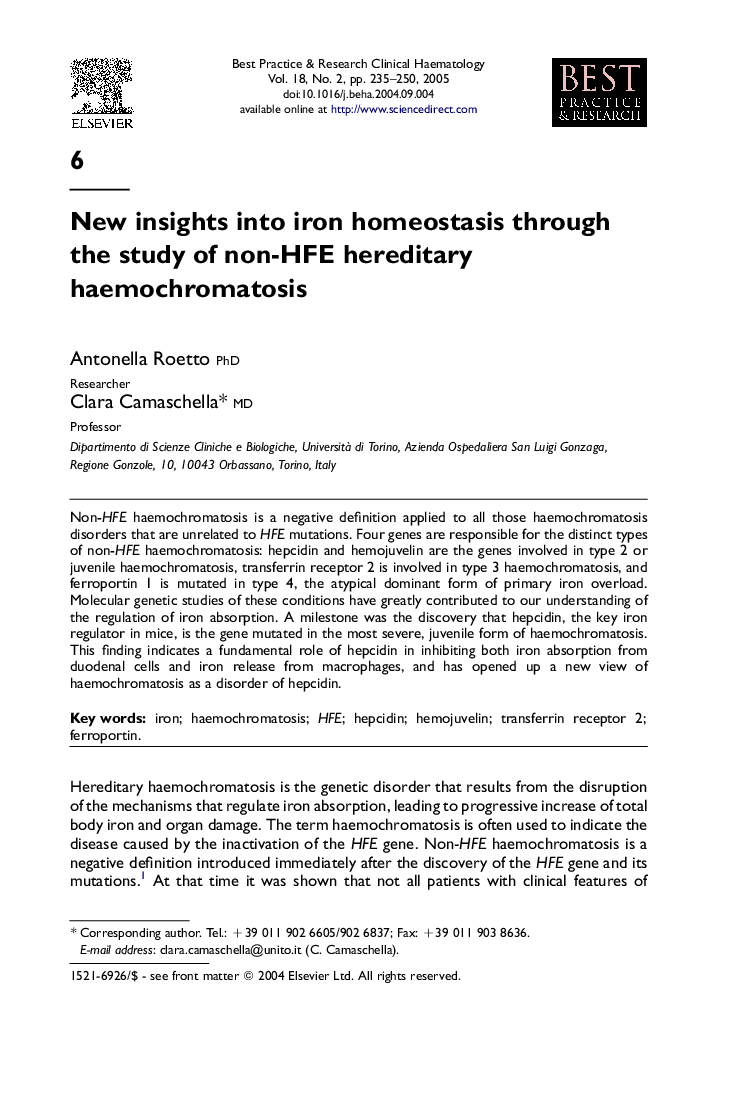| Article ID | Journal | Published Year | Pages | File Type |
|---|---|---|---|---|
| 10895352 | Best Practice & Research Clinical Haematology | 2005 | 16 Pages |
Abstract
Non-HFE haemochromatosis is a negative definition applied to all those haemochromatosis disorders that are unrelated to HFE mutations. Four genes are responsible for the distinct types of non-HFE haemochromatosis: hepcidin and hemojuvelin are the genes involved in type 2 or juvenile haemochromatosis, transferrin receptor 2 is involved in type 3 haemochromatosis, and ferroportin 1 is mutated in type 4, the atypical dominant form of primary iron overload. Molecular genetic studies of these conditions have greatly contributed to our understanding of the regulation of iron absorption. A milestone was the discovery that hepcidin, the key iron regulator in mice, is the gene mutated in the most severe, juvenile form of haemochromatosis. This finding indicates a fundamental role of hepcidin in inhibiting both iron absorption from duodenal cells and iron release from macrophages, and has opened up a new view of haemochromatosis as a disorder of hepcidin.
Related Topics
Life Sciences
Biochemistry, Genetics and Molecular Biology
Cancer Research
Authors
Antonella (Researcher), Clara (Professor),
